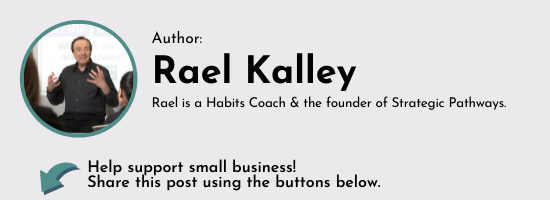Part of coaching is helping people with setting boundaries. This sounds incredibly simple but somehow the vast majority of my clients struggle with it.
“I’m too busy to get anything done,” one lamented as she continued her description of the frustrations she was experiencing in her role as a newly promoted manager.
“It feels like I am being pulled in a million different directions, each one equally important with the most recent always the most urgent.
“My boss is piling up the work she needs done now, my employees are downloading all their problems onto me and my peers seem to need my input on every decision.
“I spend so much time working that my husband demands to see ID each time I walk through the door. When I am home, my kids keep pulling me in one direction while pushing me in another.
“I keep looking at my ‘to-do’ list and all I see is a ‘not done’ list and I wonder if I will ever get caught up. I’m so tired I can’t sleep, and so stressed that I feel like choking the next person who looks at me.”
“Sounds serious,” I said, sliding my chair a little further away from her.
Do You Really Have No Choice?
“So, why do you think this is happening?”
She explained, that she had no choice. That people all around her were pulling her in different directions, and that she felt powerless to do anything to stop this insanity.
Does any of this sound familiar?
Have you, at times, felt that you had relinquished all control over your life to family, friends, colleagues and strangers and that you were merely a puppet, reacting to the way in which your strings were being pulled?
If you feel like my client is describing your life, let’s look at some of the reasons why this is happening to you. This includes the degree to which you are complicit in perpetuating these situations, and then let’s examine a few possible life saving solutions.
Setting Boundaries Means Respecting Yourself
It is helpful to begin by remembering that cemeteries are full of people whose early deaths were caused by trying to please everyone.
Another old axiom that I have long believed to be true exhorts us to understand that “people always treat us the way we train them to treat us.”
In other words we truly play a significant role in our own distress by the manner in which we respond to requests/demands from others for us to do stuff.
Each time we say yes, we are giving the requesters exactly what they want . We are teaching them to ask again and again and again and again.
Why is it that for so many of us, the most difficult task in the whole world is to say that teeny little two letter word? Somehow gets stuck in our throats and by the time we force it out it sounds something like “sure, no problem.”
You know the word I’m referring to?
It’s NO.
It’s So Hard to Say No
The strange irony is that each time we don’t say no when we want to say no, we really are saying no.
We’re just saying no ourselves.
Think about it.
Each time we say yes to someone and that causes us to set aside our priorities and preferences, we are saying no to ourselves. As we’ve discussed here before, if you don’t keep your promises to yourself, you’ll find it difficult to trust yourself, which is a key factor in growth.
Each time we say YES to solving someone else’s problem that they could/should deal with themselves, we are saying NO to providing them an opportunity for self-growth and development.
(Click to Tweet)
Each time we say YES to doing something we really don’t want to do, but feel we have to, we are saying NO to our own happiness and contentment.
Setting Boundaries isn’t Selfish
I’m not making a case for living a life of selfishness. I’m merely trying to explain the consequences of our own actions.
I’m not suggesting our automatic response to every request henceforth become NO.
I’m suggesting we recognize that YES and NO are choices and that we develop strategies that assist us in making the choices we want to make, not those we feel compelled to make.
And there is a way to lighten this load.
Only One Thing Causes Conflict
Conflict occurs when expectations aren’t met. We seldom take the time to discuss, explain and negotiate expectations with those around us.
So imagine how our loads may be lightened and our lives made happier if we could mutually reach understanding of what to expect with those folks who presently are pouring stress into our souls. Perhaps their loads would be lightened too.
Remember they can’t overextend us without our compliance. They treat us the way we have trained them to treat us. We treat them the way they have trained us.
If we could garner their cooperation in establishing a shared understanding as to what, and when, we can and will do stuff for each other, and we all agree that when we do say NO, it is not rejection of the person asking but rather an act of setting boundaries, then maybe we could all get more done with less anxiety.
Setting Boundaries is Important
We have spent many postings discussing why we do what we do. I’m sure you all remember what that is, don’t you?
We only ever do one thing – we do what is most important to us in the moment. Importance is determined by what give us pleasure or helps us avoid pain.
It becomes vitally important to make saying NO a lot less painful than saying YES when we truly feel the need to do so.
Setting these agreed-upon expectations almost eliminates the need to say NO, and more importantly takes the sting out of NO when we must say it.
Till we read again.


